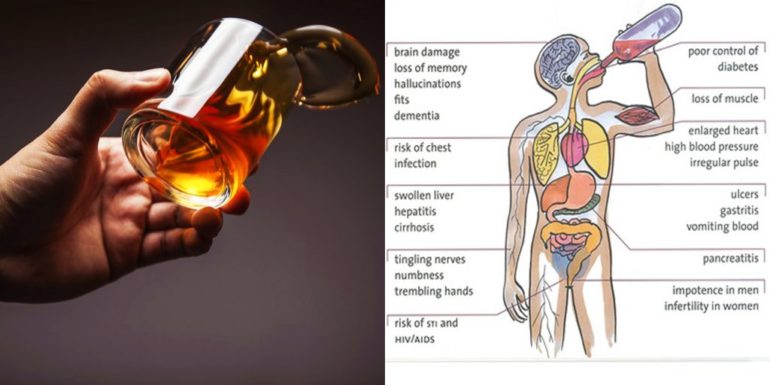Human beings have been indulging in alcohol for thousands of years. But many of us are still unaware of what it can do to us.
Human beings have been indulging in alcohol for thousands of years. But many of us are still unaware of what it can do to us. Alcohol is a slow poison that affects us in subtle ways. Our liver is the first organ to be severely affected.
There are three ways in which alcohol affects the liver:
- Drinking can cause excess fat to accumulate in the liver, causing many diseases.
- You can contract alcohol hepatitis, causing swelling of the liver, which can cause severe and fatal liver issues.
- Scarring of liver tissue through alcoholic cirrhosis.
Of course, the occasional drink will not cause so much harm. But alcohol is addictive and many find themselves drinking heavier and more regularly without even realizing it.
Alcohol also has severe effects on the psyche of the drinker. Most of the alcohol that we drink goes into our bloodstream and from there to the rest of our bodies.
Alcohol and your brain
One of the major effects of alcohol on the brain is damage to the dopamine receptors. This causes a person who stops consuming alcohol to undergo effects of withdrawal.
Our motor abilities and memory can also be heavily damaged if we are heavy drinkers. There are several other issues which will make themselves known in the long run.
Alcohol and your body
Dr. Ball, an eminent psychiatrist, has often commented on alcohol’s role in causing amnesia, cognitive and motor disabilities and also, the repercussions faced by our bodies.
Besides liver diseases, alcohol can also cause severe psychological issues like Alzheimer’s, gastrointestinal issues and multiple organ failures.
Doctors Urge People to Stop Taking Ibuprofen Immediately! Here’s Why.
The National Institute on Alcohol Abuse and Alcoholism has also studied the correlation between alcohol and assault, both sexual and otherwise.
The Institute’s studies have shown that on over half the cases of sexual assault in America, the perpetrator had consumed alcohol.
This is because alcohol removes inhibitions and the ability to calculate risks.









